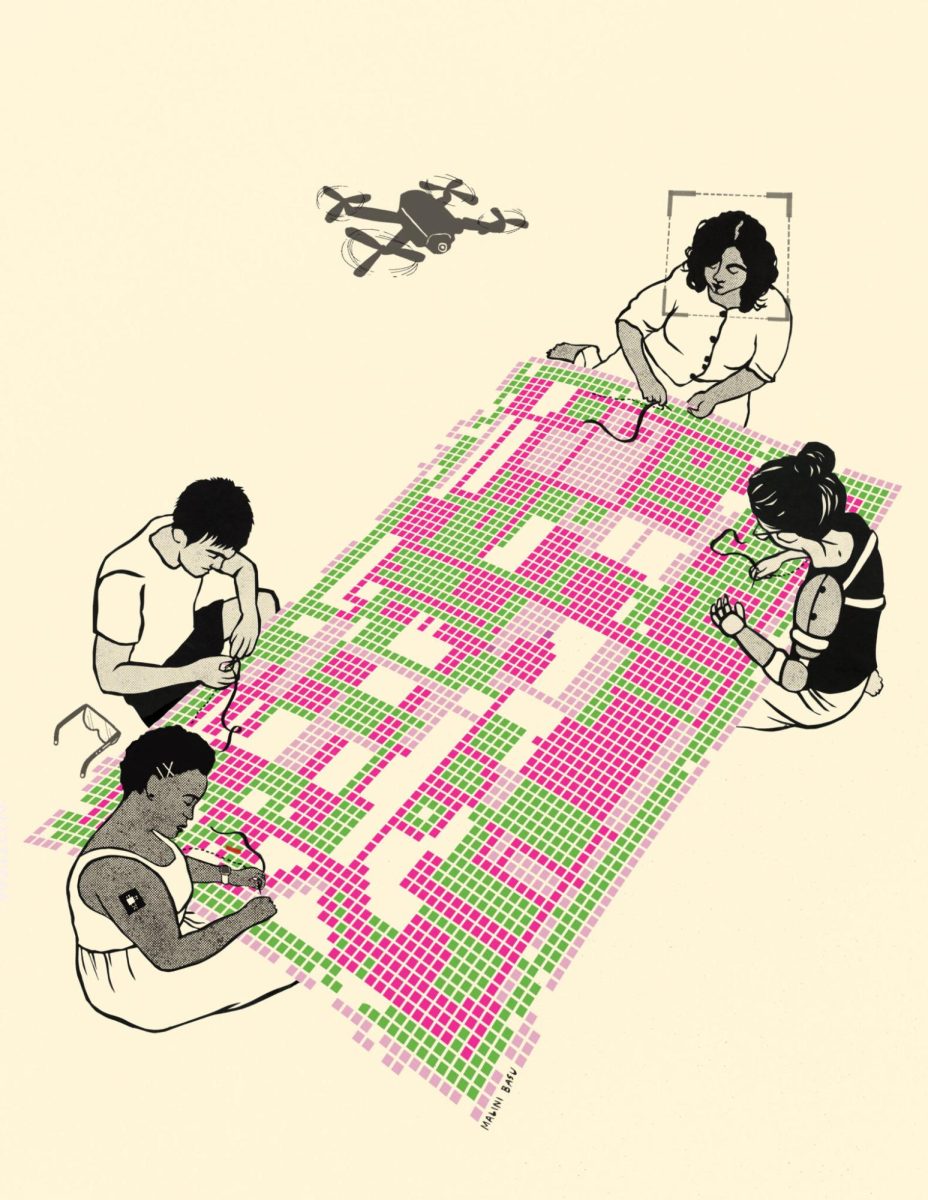Last week, from Oct. 11-13, Macalester held its 30th annual International Roundtable. This year’s theme was “Humanoids? Exploring the future of human freedom, ethics, knowledge, and relationships.” Across the three-day roundtable, there was one film screening, four plenary sessions and three student-led sessions that investigated our relationship with technology and Artificial Intelligence (AI) in various fields.
President Suzanne Rivera opened the 2023 roundtable at the first plenary session, introducing the event and its relevance at Macalester.
“[The round table is] a community forum that explores critical and timely issues linking local and global. It reflects and supports the Macalester’s commitment to social justice, fosters student community involvement and creates new opportunities to connect learning with action,” Rivera said.
Renée Cummings, a data scientist and professor at the University of Virginia’s School of Data Science, spoke at the opening plenary session. In her speech, Cummings presented her work highlighting the importance of ethical vigilance when working with artificial intelligence. She discussed how the data, both the machine learning sets it uses and the observational data it collects, are the reason the technology is possible. Although the data is often biased, AI is making increasingly important decisions based on this data.
“You’ve got to understand that you have a right to know what technologies are being used, what algorithms are being used, when and how and by whom is being used and what is going to be the impact on you,” Cummings said.
The film screening of “Fixed: The Science/Fiction of Human Enhancement” preceded a discussion with Dr. Tammy Berberi, an associate professor of French at the University of Minnesota-Morris and Dr. David Martyn, professor of German Studies at Macalester College. The Mac Weekly was unable to attend.
Dr. Emily Springer, an AI and digital inclusion consultant in international development, led the next plenary session titled “Sociotechnical machines: a feminist overview of machine learning.” The Mac Weekly was unable to attend.
The closing plenary, a discussion led by Dr. Shilad Sen, professor of computer science at Macalester, featured a panel made up of Dr. Tammy Berberi, an associate professor of French at the University of Minnesota-Morris, Cummings and Dr. Springer. They explored themes related to autonomy and technology, developing a particular focus on algorithms as the discussion continued. After panelists highlighted how algorithms differ from physical technology, because algorithms make suggestions and decisions for users, they moved the discussion topic to the future of AI. Panelists discussed the potential of an “AI Bill of Rights,” and how different communities, particularly those typically excluded from prevailing narratives, could voice their perspectives in the process of developing this bill. They also emphasized the importance of an interdisciplinary approach to AI and continued education surrounding digital literacy.
The first student-led session, “Agrobotics and Resistance: The question of human sovereignty in global agricultural production,” moderated by Mathilda Barr ’25 and Minori Kishi ’25, brought University of Minnesota professors David Mulla and Nikos Papanikolopoulos to speak on the future of sustainable agriculture. They discussed the presence of climate change and the necessity of utilizing technologies to innovate more sustainable ways to produce food, fiber and fuel. This can look like using precision agriculture, which is the customization of crop management and agrobiotics, using AI and new technologies to improve agricultural producer decision making.
Students Jerry Park Piao ’25 and Winnie Wren ’26 presented the second student-led session, “In Search of Humanity – China’s Developmental Paradox,” in which they discussed the impact of China’s rapid modernization and economic change on who is seen as human in societies. Their argument described how the struggle of seeking selfhood can create a sense of spiritual homelessness. Conversation moved to the dehumanizing nature of industrial jobs, expressing how we as researchers and presenters must take an empathetic approach to academic discussions of human beings.
“Superhuman Superfoods: Exploring the Impact of Nutritional Ideas on Our Future,” was the last student-led session of the 2023 Roundtable. The panel discussion, led by Adam Rose ’25 and Liv Whitmore ’26, was made up of Dr. Craig Hassel, a professor of Food and Nutrition at the University of Minnesota, Rasa Troup, Olympic Athlete & Nutritionist and Francesa Garcia, an Indigenous Herb Specialist. Discussion surrounded the history of nutrition and health in Western culture and how the field is grounded in a pharmaceutical approach and reductionist way of thinking about food and medicine. Topics included historically colonized ideas of nutrition, the privilege of food and food access and the future of precision nutrition, which is customizing nutrition on a genomic level to each individual.
The roundtable provided a platform for discussion surrounding technology and AI’s role in the future of agriculture, labor industries and medicine; debating how to navigate evolving technologies in an ethical way.














